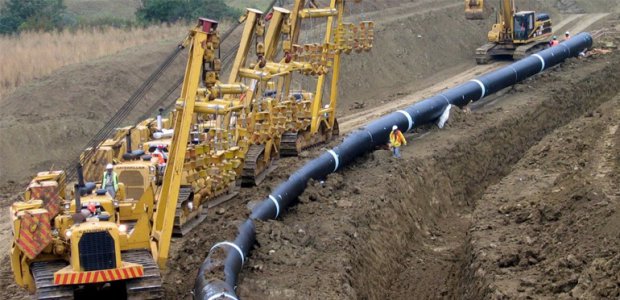Development of the Trans Adriatic Pipeline (TAP), whose Greek segment is well on the way towards completion with approximately two thirds of the project now installed, is encountering local resistance at a ten-kilometer stretch in Kavala’s Tenagi region.
Local government and municipal officials, as well as citizens, have now joined a small group of farmers who had provided initial and limited resistance against the project’s development in the area. The farmers argue the project’s crossing through the region will harm their farming interests.
The trouble spot concerns a stretch from the project’s 195th to 205th kilometer. So far, 340 kilometers of the Greek TAP section’s 550 kilometers have been installed. Overall, the project, planned to connect with the Trans Anatolian Pipeline (TANAP) at the Turkish-Greek border at Kipoi, cross northern Greece, Albania, and the Adriatic Sea to Italy, will measure 878 kilometers in length.
The ten-kilometer gap resulting from the local resistance in the Kavala area threatens to delay the TAP project’s overall ability to function as well as the scheduled launch. The Kavala area section’s development is now 12 months behind schedule.
In recent months, work crews seeking to enter the area for development activities have, on three occasions, been blocked by tractors set as obstacles by Tenagi farmers.
Pundits are attributing the resistance to the maintenance of older regional vested interests involving local politicians and citizens.
The reaction is groundless when looked at from a technical, scientific and financial perspective. Related questions raised by locals and offcials have been convincingly covered by TAP officials.
The TAP consortium sees any revision to the planned route as not being feasible in financial, technical and functional terms.
The energy ministry will host an emergency meeting this week to involve TAP consortium members and Kavala local government officials.





